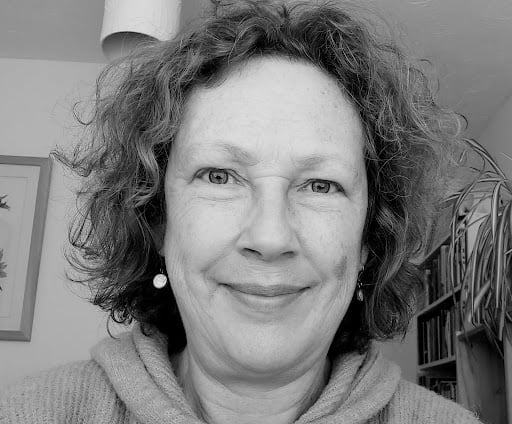This section includes:
- The poem in a nutshell
- An explanation of the poem, section-by-section
- An outline of Hardy’s intention and message in each of these sections
'The Man He Killed' in a nutshell
'The Man He Killed' is a dramatic monologue, narrated by an unnamed soldier. He recounts his experience of killing an enemy soldier on the battlefield and reflects that, if he had met the man he killed under different circumstances, the two of them might have been friends. The speaker’s lack of conviction about killing the man is emphasised by his sense of identification with him, although he also recognises that he was his enemy. The poem criticises the way that war forces soldiers to simply follow orders, without knowing or understanding the reasons for their actions. Hardy also implies that it is usually working class men who are put in this position.
'The Man He Killed' breakdown
Lines 1–4
“‘Had he and I but met
By some old ancient inn,
We should have sat us down to wet
Right many a nipperkin!”
Explanation
- If the speaker had met the man he killed near a pub, they would probably have shared quite a few drinks:
- A “nipperkin” is a measure of drink, so it’s like saying “quite a few pints”
Hardy’s intention
- The speaker contrasts the situation that actually happened with what might have happened (“Had he and I but met”) in different circumstances
- The speaker and the man he killed would probably (“should”) have been friends
- Hardy’s use of the dialect words “wet” (drink) and “nipperkin” suggests the two men would have had a lot in common, including their working class backgrounds
- Hardy is showing, right from the start, the speaker’s uncertainty about his actions:
- This opens up the subject of the irrationality and futility of war
Lines 5–8
“‘But ranged as infantry,
And staring face to face,
I shot at him as he at me,
And killed him in his place.”
Explanation
- Because the two men were enemy soldiers in an infantry regiment, they shot at each other
- The speaker killed the other man where he stood
Hardy’s intention
- Hardy introduces the circumstances in which the two men actually met
- They were both soldiers in infantry regiments, on opposite sides (“ranged”) in the conflict
- Standing “face to face” emphasises their opposition, while “staring” could suggest fear or horror
- The line describing the two men shooting at each other is very evenly balanced, with four syllables describing each man’s action:
- This highlights their mutual enmity, but also how much they are alike
- The construction of “killed him in his place” also implies how easy it would be to switch the subject round to read “killed me in my place”:
- This reinforces the commonality between the speaker and his enemy
Lines 9–16
“‘I shot him dead because –
Because he was my foe,
Just so: my foe of course he was;
That’s clear enough; although
‘He thought he’d ’list, perhaps,
Off-hand like – just as I –
Was out of work – had sold his traps –
No other reason why.”
Explanation
- The speaker shot the man because he was his enemy
- That’s clear to the speaker, even though he seems to need to convince himself of it
- However, the man he killed may have decided to enlist (’list) in the army on the spur of the moment, just like the speaker did
- He may have had similar reasons to the speaker, like being out of work, or selling his belongings (“traps” broadly means “stuff”), or some other reason that wasn’t serious
Hardy’s intention
- These lines show the speaker attempting to make sense of the situation that he and the man he killed found themselves in
- First of all, the speaker reminds himself that he shot the man because he was his enemy
- He then settles on a definite reason for killing the man:
- But he seems to need to justify it to himself when he says “Just so” to emphasise it, then repeats his statement
- “Just so” may also imply that his action was “just” the way it was, because that’s what happens in war
- The line ending “although” leads straight into the following stanza, suggesting that the speaker can’t think about the man he killed as only an enemy
- He returns to the the things that made them alike
- The sequence of possible similarities that follows shows the speaker creating more parallels between himself and the man he killed
- The similarities identified by the speaker emphasise his belief that the man he killed had the same rural, working-class background as himself
- The one reason for enlisting that the speaker doesn’t identify is patriotism, showing that he did not himself enlist for patriotic reasons
Lines 13–20
“‘Yes; quaint and curious war is!
You shoot a fellow down
You’d treat if met where any bar is,
Or help to half-a-crown.’”
Explanation
- War is unusual and odd
- In war, you shoot somebody that you would buy a drink or lend money to in other circumstances
Hardy’s intention
- These lines take the poem full-circle, back to the beginning, with the speaker asserting that, in different circumstances, he would have been friends with the man he killed
- The use of “quaint” and “curious” understate the gravity of the speaker’s experience, and are likely to be intended as ironic
In fact, war has been a devastating experience for the speaker, and the trauma of killing a man who he believes was just like himself still haunts him

